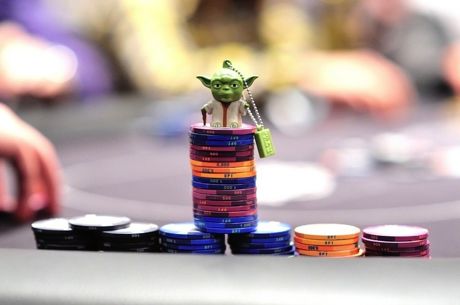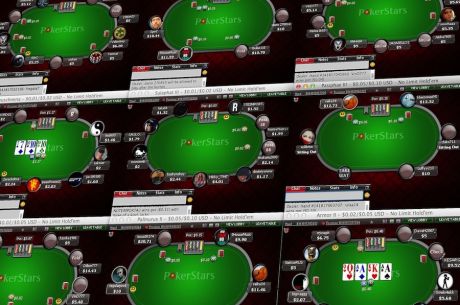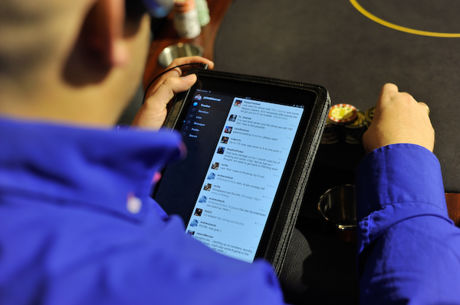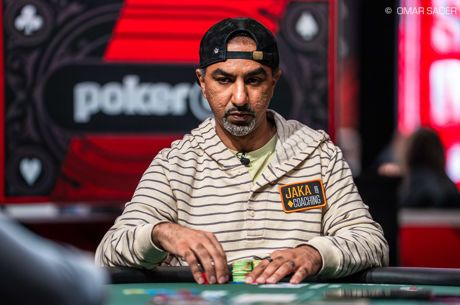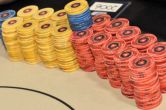Five More Mistakes Rookies Make in Live Tournaments Without Realizing It
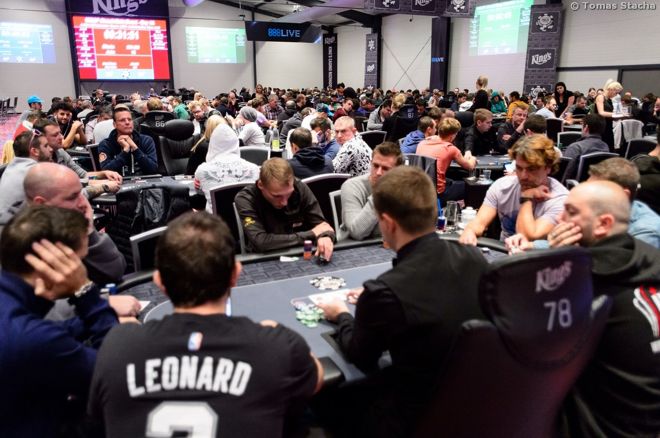
Recently we looked at five of the more common poker mistakes newer players make in live poker tournaments. These mistakes included things like acting out of turn, losing concentration towards breaks, and trying to engage superior players in table talk. They might not be immediately obvious, but they��re mistakes nonetheless.
Here are five more hidden mistakes that often harm the bottom line of players relatively new to tournaments without their realizing it. Even experienced tournament players can sometimes be guilty of some of these, too.
1. Not being aware of stack sizes
Size matters in poker, and not just your own stack size. You need to be aware of not only how much you have, but the stack sizes of anyone who has entered the pot in front of you and anyone still to act behind you. If you��re not, you may well end up making a big mistake.
Here��s an example. A player with 50 big blinds has opened from early position and you look down at J?10? in middle position. You��ve just barely got the player covered. What��s your play?
All options are open to you, but your play is first to look to your left. If you��ve got a few 15-20 big blind stacks to your left, you should probably just fold. Calling here sets one of those stacks up for a three-bet shove squeeze and you��ll be priced out of the pot having never seen a flop.
2. Not keeping big chips in front
While this mistake won��t cost you any chips, it won��t make you any friends at the table, either, as it��ll likely slow the game down and lead to fewer hands being played per hour.
It��s accepted etiquette that the largest denomination chips should be at the front of your chip stack, making them easily identifiable to everyone else at the table. This means keeping them front and center. It��s the dealer's responsibility to keep on top of this and ensure everyone's stacks are easy to see and count, but don��t be afraid to ask someone to move their big denomination chips to the front if you see them hiding at the back.
Arranging your chips in stacks of 20 is also helpful not just for keeping track of your own chips, but making them presentable to others. Some prefer shorter or taller stacks, but most say 20 is easiest for counting. However you stack your chips, do it neatly enough to ensure others can count them.
3. Tossing in a big chip without announcing a raise or the exact bet amount
This doesn��t just happen in your nightly $100 turbo. I see this one just about every time I cover a European Poker Tour event �� usually during the opening levels as players are feeling their way into the tournament.
Tossing in a single big chip does not indicate a raise, but rather a call. There are two ways players usually fall afoul of this rule. The first is just tossing the chip in and saying nothing at all. That will always go as a call. The second way is a little more complicated.
Imagine the blinds are 150/300 and two players have made it to the turn with about 6,000 in the middle. In this spot, it��s no good tossing in a 5,000-denomination chip and saying "three." Sure, it's clear that in this instance you��ve certainly meant to bet 3,000, but as the minimum legal bet is 300 it can go as a bet of 300. That would be bad for you, because not only have you let your opponent(s) see a cheap river card, if you were making a value bet you��ve also left value on the table.
4. Assuming your opponent plays like you do
This one is a little tricky to explain, but dovetails with the idea of "playing the player, not the cards."
Basically if you��re ever in a hand in which you��re having to call a big bet or a shove �� happens frequently, right? �� make sure your thought process goes along the lines of "What would he/she shove in this spot?" and not "What would I shove in this spot?"
Next time you��re running a decision through your head and say to yourself "He��d never shove ace-queen in this spot" (or whatever hand), make sure you really mean that and are not projecting your own tendencies onto an opponent. Everyone has different playing styles and you need to get outside of your head and into theirs to make better reads at the poker table.
For more on this mistake, take a look at the article "How Your Own Poker Style Can Skew Your Reads of Others."
5. Going with it regardless of new information
We��ve all been there. You've dutifully grinded a short stack despite being card dead and have nursed your way through the tournament when you finally look down at a real hand in the big blind. Say you are dealt pocket tens �� they look massive, given you were ready to shove with much worse.
But before the action comes around, there��s two shoves in front of you. How big do those tens look now? "Yeah, man, but it��s the best hand I��ve seen all day," you think to yourself. "There's no way I can fold this." So in your chips go, and out of the tournament you tumble. Your hand was crushed and so are your dreams of victory.
Always stop and think before acting, utilizing all the information available to you. If new information turns a slam dunk shove into a fold, then make that tough fold �� just don��t tell anyone, right?
Also in this series...
Want to stay atop all the latest in the poker world? If so, make sure to get PokerNews updates on your social media outlets. Follow us on Twitter and find us on both Facebook and Google+!

